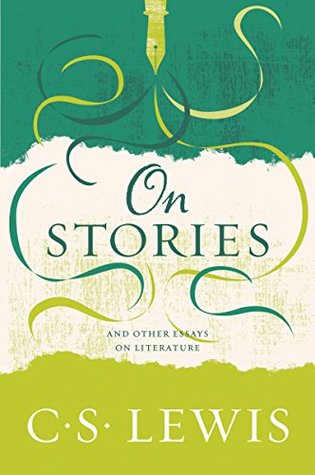More on this book
Community
Kindle Notes & Highlights
Morality exists to be transcended. We act from duty in the hope that someday we shall do the same acts freely and delightfully.
I am almost inclined to set it up as a canon that a children’s story which is enjoyed only by children is a bad children’s story.
When I was ten, I read fairy tales in secret and would have been ashamed if I had been found doing so. Now that I am fifty I read them openly. When I became a man I put away childish things, including the fear of childishness and the desire to be very grown up.
According to Tolkien1 the appeal of the fairy story lies in the fact that man there most fully exercises his function as a ‘subcreator’; not, as they love to say now, making a ‘comment upon life’ but making, so far as possible, a subordinate world of his own. Since, in Tolkien’s view, this is one of man’s proper functions, delight naturally arises whenever it is successfully performed.
We must meet children as equals in that area of our nature where we are their equals.
scientism—a certain outlook on the world which is casually connected with the popularisation of the sciences, though it is much less common among real scientists than among their readers. It is, in a word, the belief that the supreme moral end is the perpetuation of our own species, and that this is to be pursued even if, in the process of being fitted for survival, our species has to be stripped of all those things for which we value it—of pity, of happiness, and of freedom.
I must, of course, admit that the actual state of affairs may sometimes be so bad that a man is tempted to risk change even by revolutionary methods; to say that desperate diseases require desperate remedies and that necessity knows no law. But to yield to this temptation is, I think, fatal. It is under that pretext that every abomination enters. Hitler, the Machiavellian Prince, the Inquisition, the Witch Doctor, all claimed to be necessary.
A myth points, for each reader, to the realm he lives in most. It is a master key; use it on what door you like.
The value of the myth is that it takes all the things we know and restores to them the rich significance which has been hidden by ‘the veil of familiarity’.
Haggard is the text-book case of the mythopoeic gift pure and simple—isolated, as if for inspection, from nearly all those more specifically literary powers with which it so fortunately co-exists in, say, The Ancient Mariner, Dr Jekyll and Mr Hyde, or The Lord of the Rings.
The story of Ayesha is not an escape, but it is about escape; about an attempt at the great escape, daringly made and terribly frustrated. Its closest relative, perhaps its child, is Morris’s The Well at the World’s End, which came ten years later. Both stories externalise the same psychological forces; our irreconcilable reluctance to die, our craving for an immortality in the flesh, our empirical knowledge that this is impossible, our intermittent awareness that it is not even really desirable, and (octaves deeper than all these) a very primitive feeling that the attempt, if it could be
...more
I must learn not to do the like about the dead: and if I hazard a conjecture, it must be with full knowledge, and with a clear warning to my readers, that it is a long shot, far more likely to be wrong than right.
no story can be devised by the wit of man which cannot be interpreted allegorically by the wit of some other man.


